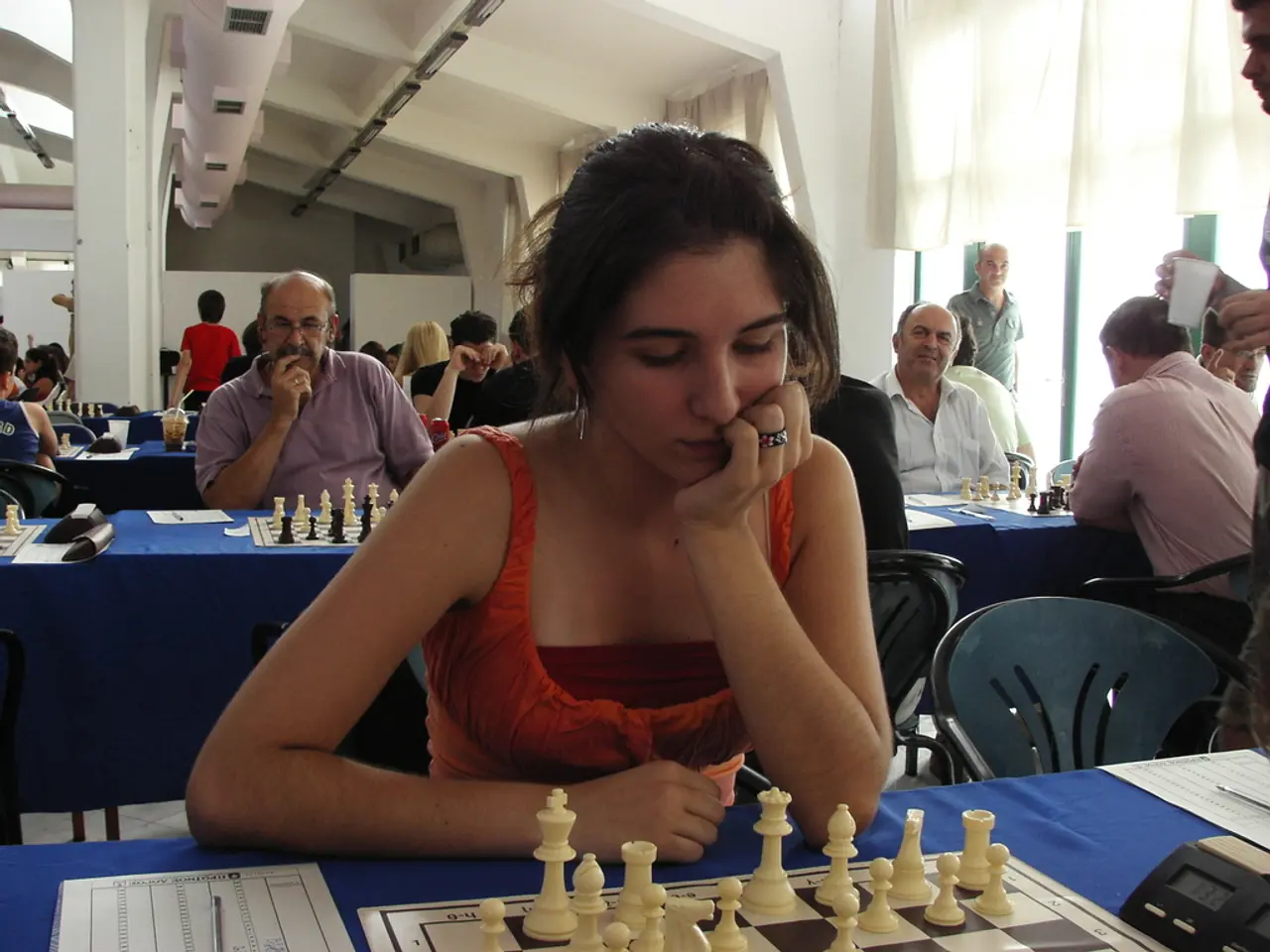Unveiled: The Subtle Sexism in the World of Chess
In the world of chess, a significant imbalance exists between the number of male and female players, particularly as they progress into their teenage and adult years. This disparity often prevents women from achieving Grandmaster or Master titles. To tackle this issue and reduce gender bias, a multi-faceted approach is necessary, involving the collective efforts of parents, coaches, federations, sponsors, and society.
One organisation leading the charge is Her Move Next, a non-profit organisation dedicated to empowering girls in chess and combating gender inequality.
Research suggests that the early years are crucial in fostering confidence in young female players. Parents and mentors play a vital role in encouraging girls to believe they can compete at the highest levels, even in open (mixed-gender) competitions. Maintaining this belief from a young age is essential, as it often fades during adolescence without support.
Coaches should also actively scout and mentor female talent, recognising and nurturing potential rather than reinforcing stereotypes or dismissing girls prematurely.
Chess federations must implement and enforce policies that promote female representation and inclusivity, addressing systemic barriers such as unequal access to training, tournaments, and recognition. Sponsors should commit to providing consistent financial backing specifically aimed at female players to help offset disparities in resources, prize money, and visibility.
Society, including the chess community, must actively resist ingrained gender bias, skepticism, and objectification. Elevating the achievements of female players reinforces positive role models and normalises women’s success in chess.
Training for mentors, coaches, and officials to recognise implicit biases and refrain from judging female players on irrelevant criteria such as appearance or gender stereotypes can improve treatment and opportunities. Equal pay, fair tournament structures, and zero tolerance for harassment or discrimination are essential to creating a safe, equitable environment where female youth players can thrive.
These interventions require systemic change and persistent effort to dismantle both overt and subtle sexism in chess, fostering an environment where female youth players and their mentors can succeed free from bias.
Research has shown that gender bias is prevalent at all levels of chess, from beginners to professionals. A study published by NYU, with contributions from Jennifer Shahade, two-time U.S. Women’s Champion, proved the gender bias in chess to be statistically true.
Former world champion Garry Kasparov differentiated between "real chess" and "women's chess," implying that women cannot play "real" chess. Judit Polgar, a successful female player, has experienced male opponents blaming their losses against her due to "headaches."
The prize for the Women's World Chess Championship is 10% smaller than the prize for the World Chess Championship. This disparity, coupled with the fact that girls expect failure and may face guardian discouragement, likely contributes to the lack of resilience in response to poor performance among female players.
Despite these challenges, organisations like Her Move Next are making a difference. Suri, a coach at Her Move Next, stresses the importance of communities that support girls in chess. The girls coached by Suri have continued to play chess due to the community and friendships they have built.
Her Move Next hosts monthly tournaments, lessons, and events for girls, providing opportunities for them to develop their skills and build their confidence. These initiatives are crucial in creating an environment where female youth players can flourish and achieve their full potential in the world of chess.
- The sports world of chess needs a comprehensive approach to combat gender disparity and empower female players, involving organizations like Her Move Next.
- Implicit biases and stereotypes against female players can be minimized through training for mentors, coaches, and officials, helping to create a fair and equitable environment.
- In the realm of personal growth and education, it's essential to recognize and challenge the gender bias prevalent even in professional chess, as demonstrated by studies like the one published by NYU with Jennifer Shahade's contribution.
- For businesses and sponsors in the finance and lifestyle sectors, the support of female players through consistent financial backing can help dismantle systemic barriers and achieve gender equality in chess.
- In the fashion-and-beauty and careers domains, elevating the achievements of successful female players like Judit Polgar, who have faced discrimination and bias, can serve as inspiring role models for future generations of female chess players.




